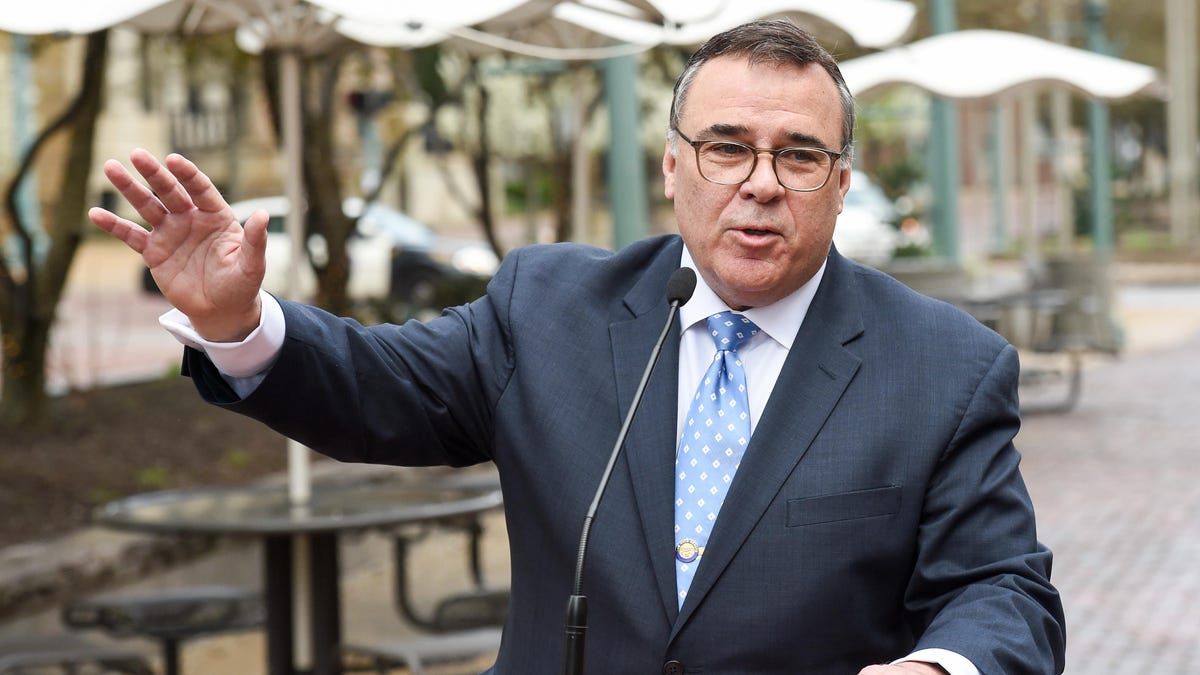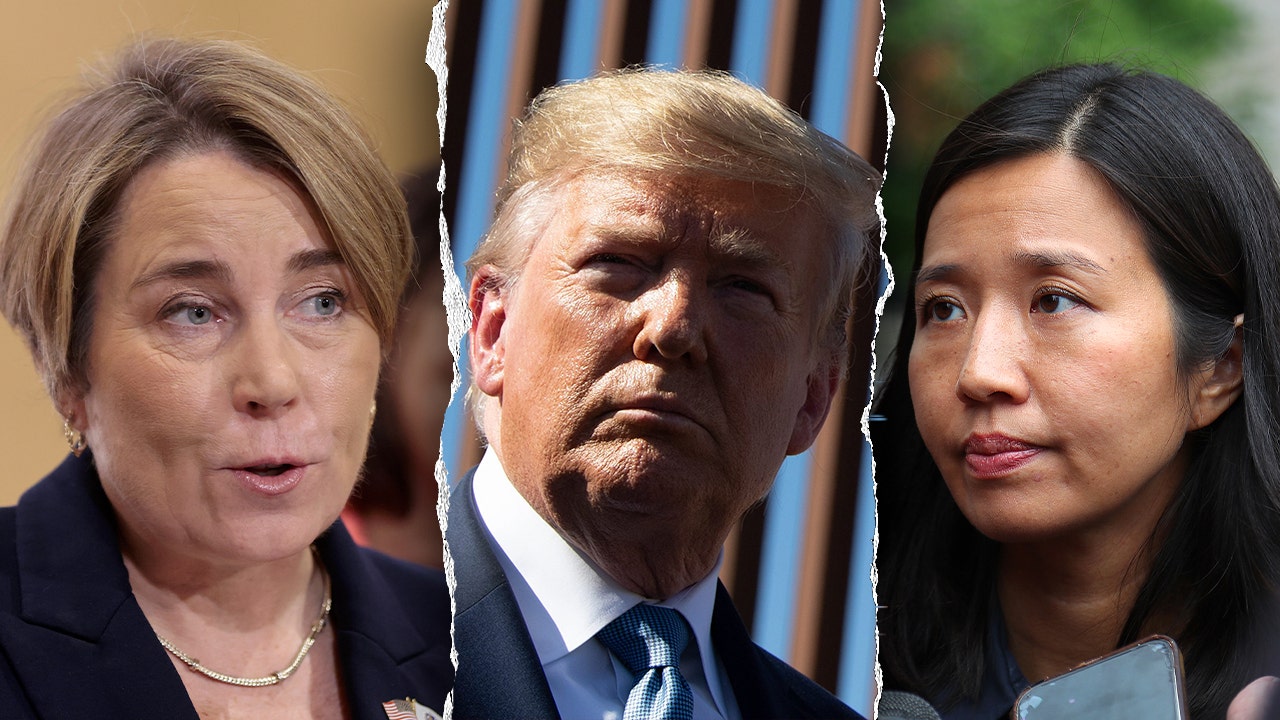LINCOLN — Nebraska signed a multibillion-dollar contract with a managed care giant this year despite the company paying nearly $1 billion nationally to settle concerns about pharmacy overbilling practices.
Those payments include a $29.3 million settlement with the State of Nebraska. Then-Attorney General Doug Peterson and officials with Centene Corp. signed the settlement agreement on Dec. 29, 2021.
Nine months later, the state Medicaid director announced that Nebraska Total Care, a Centene subsidiary, would be one of three firms awarded a Medicaid managed care contract. Each contract is worth up to $4.25 billion for 2024 through 2029, with three optional extension years worth up to $850 million each.
People are also reading…
The three contractors will be responsible for managing physical and behavioral health care, pharmacy services and dental benefits for almost all Medicaid patients. Together, they will oversee the care of some 347,000 low-income Nebraskans.
It’s unclear what state Medicaid officials knew about Centene’s Nebraska settlement when they awarded the contracts.
The Attorney General’s Office did not make the settlement public until Oct. 26 last year, one month after the contract awards were announced and 10 months after the agreement was signed. Even then, the office simply posted a link to the settlement document, without a press release or other announcement.
Still, the settlement went public before the Department of Health and Human Services actually signed the contract with Nebraska Total Care on Jan. 24.
HHS and the Attorney General’s Office both refused to answer any questions about the Centene settlement or the contract awards, citing pending litigation.
The litigation in question was filed by Community Care Plan of Nebraska, doing business as Healthy Blue. The company filed the suit in December of last year after being shut out for the new contracts and losing two rounds of administrative protests.
Healthy Blue currently has a Medicaid managed care contract with the state that ends Dec. 31. The other current contractors are Nebraska Total Care and United HealthCare of the Midlands, both of which won new contracts.
In its suit, Healthy Blue contends, among other things, that Centene’s bid should have been disqualified because the company did not disclose the Nebraska settlement or other state investigations into prescription benefit overcharging.
At least 18 states have settled with the St. Louis-based managed care company over its pharmacy benefits practices in the last two years. The first was Ohio, where State Attorney General Dave Yost filed suit against the company following state investigations.
According to the Ohio Dispatch, Yost alleged that Centene had sought payment for services that had already been reimbursed, failed to disclose the true costs of pharmacy services, including discounts, and artificially inflated dispensing fees. The company ended up agreeing to pay $88.3 million to settle the case in June 2021.
At the same time, Centene agreed to pay $55 million to Mississippi, which was investigating similar allegations, and set aside $1.1 billion for settlements with other states.
Settlement agreements so far have included $215 million for California, $165.6 million for Texas, $26.7 million for Kansas and $44 million for Iowa, where a state investigation and audit found irregularities in the company’s reporting of costs of pharmacy benefits to Medicaid.
Nebraska officials refused to say what investigations had been done leading up to the settlement here. But the agreement made reference to the state “reviewing” the operations of Total Care and its pharmacy benefits manager, Envolve.
The agreement also said that “the State requires full transparency from the Centene Entities around the costs and fees associated with those services paid for by the States” and that Centene’s payment was intended to satisfy any repayment obligations to the state.
As with the other settlements, Centene denied any wrongdoing or liability and the agreement said the “State believes the Centene Entities have provided high quality pharmacy benefit services to the State and are qualified to continue to provide such services.”
Nebraska isn’t the only state to reach a settlement and then turn around and award Centene a new Medicaid managed care contract.
Ohio officials awarded the company a new contract shortly after that state’s settlement was reached. The officials said that including Buckeye Health Plan, a Centene subsidiary, would give residents “more options when choosing a managed-care health plan in the department’s new person-centered vision of care.”
California also signed Centene to new contracts for Los Angeles and Sacramento Counties.
In a response to the protests filed by Healthy Blue, Centene said it had disclosed everything required under the state’s request for proposals. The RFP called for bidders to provide information about “any criminal or civil investigation by a state or federal agency.”
Centene argued that all but three of the state agreements, which were disclosed, were “no-fault settlements” reached after “proactive outreach” by the company, rather than investigations that needed to be disclosed.
In her decision denying Healthy Blue’s protest, HHS CEO Danette Smith sided with Centene. She said the agency had exercised discretion in considering the company’s disclosures and had taken into account their “timing, no-fault character and anticipatory nature.”
The Healthy Blue lawsuit is the latest trouble to hit Nebraska’s procurement process.
The process has come under scrutiny after a series of cases in which officials wound up choosing a low-cost bidder that failed to do the job. The most recent case was the selection of St. Francis Ministries, a Kansas-based nonprofit, to manage Omaha-area child welfare cases. Nebraska ended up terminating the contract early.
Speaker of the Legislature John Arch of La Vista proposed several changes to the procurement process this year, following an in-depth study and report in 2022. His bill was not debated this year because of an ongoing filibuster over other issues but could be considered next year.
Nebraska’s current Medicaid managed care contracts date to 2017, when the state signed with three private companies to administer what was then $1.2 billion worth of Medicaid services. Since then, two of the original three companies merged, which led to the state signing a contract with Healthy Blue.
Our best Omaha staff photos & videos of June 2023
LSU’s Nic Bronzini (14) and Christian Little (99) celebrate following the Florida vs. LSU, game three of the College World Series championship series, in Omaha on Monday. LSU won the title 18-4.

Florida’s Brandon Neely (22), from left, Tyler Shelnut (6) and BT Riopelle (15) give autographs to young fans following the Florida vs. LSU, game two of the College World Series championship series, at Charles Schwab Field in Omaha on Sunday, June 25, 2023. Florida won 24-4.

LSU’s Tommy White (47) celebrates his walk-off homer in the Wake Forest vs. LSU CWS men’s College World Series, game thirteen in Omaha on Thursday. LSU won in a walk-off home in the 11th inning.

LSU’s Gavin Guidry (1) throws a ball against the wall of the bullpen in the Wake Forest vs. LSU CWS men’s College World Series, game twelve in Omaha on Wednesday.

Ivie Galvan, right, of Goodyear, Ariz., and her aunt Sarah Shortbull, of Yankton, S.D., sit in the stands ahead of the Florida vs. TCU CWS men’s College World Series, game eleven in Omaha on Wednesday.

Tennessee’s Maui Ahuna, left, talks to the first base coach in the third inning against LSU during game nine of the College World Series on Tuesday, June 20, 2023.

Drone photography of J & S Feedlot and Farm, with about 2,000 head of cattle, near Dodge, Neb., on Tuesday. With Dodge County under extreme or exceptional drought, owners Joan and Steve Ruskamp have had to adjust how they care for their cattle.

A Tesla coil electrifies a baseball in the World-Herald on Wednesday.

An Omaha police officer keeps people away from where a suspicious package that prompted a law enforcement response near gate 2 at Charles Schwab Field on Thursday, June 15, 2023.

An Omaha police officer carries a suspicious package that was found near gate 2 at Charles Schwab Field on Thursday, June 15, 2023.

Florida’s Josh Rivera shows off his glove after practice on Thursday, June 15, 2023.

TCU’s Tre Richardson stretches before practices on Thursday.

Lt. Dennis Svoboda, with the Sarpy County Sheriff’s Office, leads a training session on an airboat for the search and rescue team on the Platte River near Louisville, Neb., on Thursday, May 25, 2023.

Sculptor John Lajba walks about his Road to Omaha Sculpture before cleaning it at Charles Schwab Field on Wednesday, June 07, 2023.The sculpture was dedicated exactly 24 years earlier at Rosenblatt Stadium.

John Lajba scrubs his Road to Omaha Sculpture at Charles Schwab Field on Wednesday.

John Lajba spray washes his Road to Omaha Sculpture at Charles Schwab Field on Wednesday.

Kaitlyn Emanuel, a North Bend Central three-sport athlete, is the Omaha World-Herald girls Athlete of the Year. Photographed at her family’s farm outside North Bend, Neb., on Friday.

2023 All-Nebraska baseball team captains Millard South’s Cam Kozeal, left, and Omaha Gross’s Connor Capece pose for a portrait on Thursday.

Police closed Hamilton Street near 30th to investigate a shooting early on Wednesday.

A dog peeks out of a window and watches as police investigate a shooting near 30th and Hamilton Streets on Wednesday.

Omaha police and forensics investigators look for evidence as they investigate a shooting that injured one person near 30th and Hamilton Streets on Wednesday.

Omaha police investigate a shooting that injured one person near 30th and Hamilton Streets on Wednesday.

Some of the leather bags from Jared Hall’s 3am Luxury brand.

The Omaha fire department investigate the scene after a forklift struck a propane tank and caused an explosion at 4301 N 30th St. a on Monday. One person was seriously injured.

A woman is visible distraught after a forklift struck a propane tank and caused an explosion and blew the garage doors off of a building owned by Omaha Public Schools located at 4301 N 30th St. a on Monday. One person was seriously injured.

O.NE Finest dancers perform during a hometown send-off for Terence “Bud” Crawford ahead of his fight with fellow welterweight world champion Errol Spence on July 29. Photographed at B&B Sports Academy in North Omaha on Saturday.

Julia McGuigan, facing, demonstrates a drawing technique with student Anahi Salazar during an “Urban Illustration” workshop at her studio and shop north of downtown Omaha on May 12.





























/cdn.vox-cdn.com/uploads/chorus_asset/file/25739950/247386_Elon_Musk_Open_AI_CVirginia.jpg)
